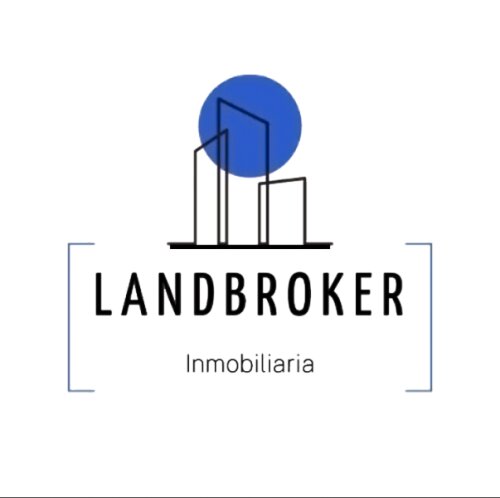Best Brokerage Lawyers in Córdoba
Share your needs with us, get contacted by law firms.
Free. Takes 2 min.
Free Guide to Hiring a Real Estate Lawyer
List of the best lawyers in Córdoba, Argentina
About Brokerage Law in Córdoba, Argentina
Brokerage in Córdoba covers several professional activities where an intermediary facilitates a transaction or negotiation between two or more parties in exchange for a commission or fee. The most common types are real estate brokerage, securities brokerage, and insurance brokerage. Each type is governed by a combination of national rules, provincial regulations, professional codes, and market or industry practices. In Córdoba province, real estate brokerage is highly regulated by provincial professional associations and consumer-protection rules, while securities and insurance brokerage follow national regulatory frameworks enforced by federal agencies.
Understanding the applicable rules and the typical terms of brokerage contracts is essential because brokerage arrangements often create binding obligations on commissions, disclosure, confidentiality, and post-contractual liabilities. Local practice, registration with professional colleges and supervisory authorities, and compliance with tax and anti-money-laundering requirements are particularly relevant in Córdoba.
Why You May Need a Lawyer
You may need a specialized lawyer when dealing with brokerage matters to protect your rights, avoid costly mistakes, and ensure compliance with both provincial and national regulations. Common situations where legal advice is advisable include drafting or reviewing brokerage agreements, resolving disputes over commissions, handling breaches of exclusivity or fiduciary duties, and addressing regulatory compliance issues.
Specific reasons to consult a lawyer include:
- Drafting or negotiating exclusive or non-exclusive brokerage mandates so the scope, commission basis, term and termination clauses are clear and enforceable.
- Disputes about commission entitlement after termination of the mandate, including sales concluded through leads generated by the broker or after a specified post-term period.
- Allegations of misrepresentation, lack of disclosure, conflict of interest or breach of duty by a broker.
- Regulatory compliance matters, such as proper registration with the applicable professional college, securities authorization with the Comisión Nacional de Valores (CNV), insurance registration with the Superintendencia de Seguros de la Nación (SSN), tax obligations before AFIP and AML obligations to the Unidad de Información Financiera (UIF).
- Consumer protection claims under national and provincial consumer-defense laws.
- Enforcing or negotiating settlement of unpaid commissions, including litigation or alternative dispute resolution.
Local Laws Overview
Brokerage in Córdoba is shaped by a mix of national laws and provincial rules. Key legal elements to keep in mind are:
- Professional Registration and Regulation - Real estate brokers in Córdoba normally register with the Colegio de Corredores Inmobiliarios de la Provincia de Córdoba or equivalent provincial body. Registration often requires formal training, a professional license, and adherence to the college's ethical and disciplinary rules.
- National Financial and Insurance Regulation - Securities brokers and investment intermediaries are regulated by the Comisión Nacional de Valores (CNV). Insurance brokers must comply with rules from the Superintendencia de Seguros de la Nación (SSN). These regulators set licensing, conduct and reporting standards that operate at a national level.
- Consumer Protection - Law 24.240 (national consumer-protection statute) and provincial consumer-protection regulations protect individuals against unfair, deceptive or abusive practices by brokers. Municipal consumer offices and the provincial defensorias may also be relevant for complaints.
- Contracts and Civil Law - Brokerage mandates are contractual. Civil and commercial codes govern formation, interpretation and breach of contracts. Typical contractual issues include commission calculation, exclusivity, termination, and clauses on post-contractual commissions (right to commission for operations concluded after mandate termination if attributable to broker activities).
- Tax and Social Security - Brokers must comply with AFIP rules for income tax, VAT and social security contributions when applicable. The tax treatment differs by activity type and contract arrangement, so correct classification and invoicing are important.
- Anti-Money-Laundering and Know-Your-Customer - Law 25.246 and related UIF regulations impose obligations on intermediaries to report suspicious transactions and implement KYC procedures. These rules apply across sectors and are particularly relevant for high-value real estate transactions and financial markets.
- Disciplinary and Administrative Sanctions - Professional colleges and national regulators can impose sanctions, fines or suspensions for breaches of professional duties, unauthorized activity or non-compliance with regulatory obligations.
Frequently Asked Questions
What is a brokerage mandate and why should it be in writing?
A brokerage mandate is a contract that appoints a broker to promote, negotiate or conclude transactions on behalf of a client. Having the mandate in writing clarifies the scope of services, commission basis, term, exclusivity, confidentiality, and what happens on termination. Written mandates reduce disputes about whether a broker is entitled to a commission and make enforcement easier in court or arbitration.
Do brokers in Córdoba need to be registered or licensed?
Yes, in many sectors brokers must be registered. Real estate brokers commonly register with the provincial Colegio de Corredores Inmobiliarios de la Provincia de Córdoba. Securities and investment brokers require authorization from the Comisión Nacional de Valores (CNV). Insurance brokers must comply with the Superintendencia de Seguros de la Nación (SSN). Registration requirements vary by activity, so confirm the relevant registry for your type of brokerage.
How are brokerage commissions calculated and paid?
Commissions are normally agreed in the mandate and may be calculated as a percentage of the transaction price, a fixed fee, or a combination. In real estate, common practice often results in a percentage-based commission, but exact rates are negotiable. Commission entitlement typically arises when the broker produces a purchaser who concludes the transaction on the terms presented or when the client accepts a matching offer. The mandate should specify who pays VAT and when commissions become due.
Can a broker claim a commission after the mandate ends?
Yes, provided the contract contains a clear post-term protection clause stating the period and conditions under which a commission is payable after termination. Without a contractual provision, courts may still recognize a right to commission if the sale was the foreseeable result of the broker's prior activities and the client unfairly benefits. To avoid uncertainty, include explicit post-term clauses that define leads, traceable buyers and time limits.
What consumer-protection rights exist if I feel misled by a broker?
Consumers have rights under national law (Law 24.240) and provincial consumer regulations. If you believe a broker engaged in deceptive practices, failed to disclose material information, or charged unfair fees, you can file a complaint with provincial consumer-protection offices, the Colegio if the broker is registered, and in some cases take civil action for damages. Documentation and copies of written mandates, communications and advertising help support a claim.
How do anti-money-laundering rules affect real estate transactions?
High-value real estate transactions are subject to AML measures. Brokers must implement KYC procedures, verify identities, keep transaction records, and report suspicious operations to the Unidad de Información Financiera (UIF). Failure to comply can result in fines and administrative penalties. Clients should expect brokers to request documentation and to follow due-diligence protocols.
What should I check before hiring a broker?
Verify the broker's registration with the relevant Colegio or national regulator, request proof of professional credentials and insurance if available, ask for references and examples of similar transactions, and review the draft mandate carefully to confirm commission percentages, exclusivity, duration, termination and dispute-resolution clauses. Confirm how costs, taxes and VAT are handled and whether the broker follows AML procedures.
How are brokerage disputes usually resolved in Córdoba?
Disputes can be resolved through negotiation, mediation, arbitration or litigation. Many brokerage contracts include arbitration or mediation clauses to speed up resolution and reduce costs. For consumer-related disputes, mediation or administrative complaints with consumer protection authorities and professional colleges are common first steps. Complex or high-value disputes may require court proceedings in provincial civil and commercial courts.
Are there common contractual clauses that I should avoid or modify?
Watch for overly broad exclusivity clauses that lock you in without fair compensation, ambiguous commission formulas, clauses that extend commission entitlement indefinitely after termination, unilateral termination penalties, and clauses that waive consumer-protection rights. Negotiate clear definitions for when commissions become payable, the method of calculating fees, and reasonable post-term protection periods.
How much does hiring a lawyer for brokerage matters typically cost?
Costs vary based on the lawyer's experience, the complexity of the matter and the fee arrangement. Common fee structures include fixed fees for contract drafting or review, hourly rates for advisory or negotiation work, and contingency arrangements for commission recovery in some cases. Ask for a written fee agreement that details the scope of work, billing method, and any additional costs such as court fees or expert reports.
Additional Resources
Useful organizations and bodies that can help when dealing with brokerage matters in Córdoba include:
- Colegio de Corredores Inmobiliarios de la Provincia de Córdoba - provincial professional college for real estate brokers.
- Comisión Nacional de Valores (CNV) - national regulator for securities and investment intermediaries.
- Superintendencia de Seguros de la Nación (SSN) - regulator for insurance intermediaries.
- Unidad de Información Financiera (UIF) - anti-money-laundering authority responsible for reports and guidance on suspicious transactions.
- Administración Federal de Ingresos Públicos (AFIP) - tax authority for guidance on fiscal obligations and invoicing.
- Provincial and municipal consumer-protection offices - for complaints under consumer-protection laws.
- Local mediation centers and arbitration institutions - many disputes are resolved through alternative dispute resolution mechanisms in Córdoba.
Next Steps
If you need legal assistance with a brokerage matter in Córdoba, follow these practical steps:
- Gather your documents - collect the brokerage mandate, communications, invoices, identity documents, proof of registration or advertisements and any other evidence related to the transaction.
- Verify credentials - confirm the broker is registered with the appropriate professional college or national regulator and request copies of identification and registration numbers.
- Conduct an initial consultation - consult a lawyer with experience in the relevant brokerage field (real estate, securities or insurance). Use the consultation to evaluate the strength of your position and discuss possible outcomes and costs.
- Decide on next actions - based on legal advice, choose negotiation, administrative complaint, mediation, arbitration or litigation. Consider cost, timing and likelihood of enforcement.
- Keep records and follow compliance - ensure the broker complies with AML procedures and tax obligations where relevant, and keep detailed records of all steps you take.
- Seek alternative dispute resolution where appropriate - mediation or arbitration can save time and costs, but only if that route serves your objectives and is available under the contract or by mutual agreement.
If you are unsure how to begin, contact a lawyer in Córdoba who specializes in the specific brokerage sector you need. A local specialist will understand the provincial practices, regulatory environment and procedural steps needed to protect your rights effectively.
Lawzana helps you find the best lawyers and law firms in Córdoba through a curated and pre-screened list of qualified legal professionals. Our platform offers rankings and detailed profiles of attorneys and law firms, allowing you to compare based on practice areas, including Brokerage, experience, and client feedback.
Each profile includes a description of the firm's areas of practice, client reviews, team members and partners, year of establishment, spoken languages, office locations, contact information, social media presence, and any published articles or resources. Most firms on our platform speak English and are experienced in both local and international legal matters.
Get a quote from top-rated law firms in Córdoba, Argentina — quickly, securely, and without unnecessary hassle.
Disclaimer:
The information provided on this page is for general informational purposes only and does not constitute legal advice. While we strive to ensure the accuracy and relevance of the content, legal information may change over time, and interpretations of the law can vary. You should always consult with a qualified legal professional for advice specific to your situation.
We disclaim all liability for actions taken or not taken based on the content of this page. If you believe any information is incorrect or outdated, please contact us, and we will review and update it where appropriate.









